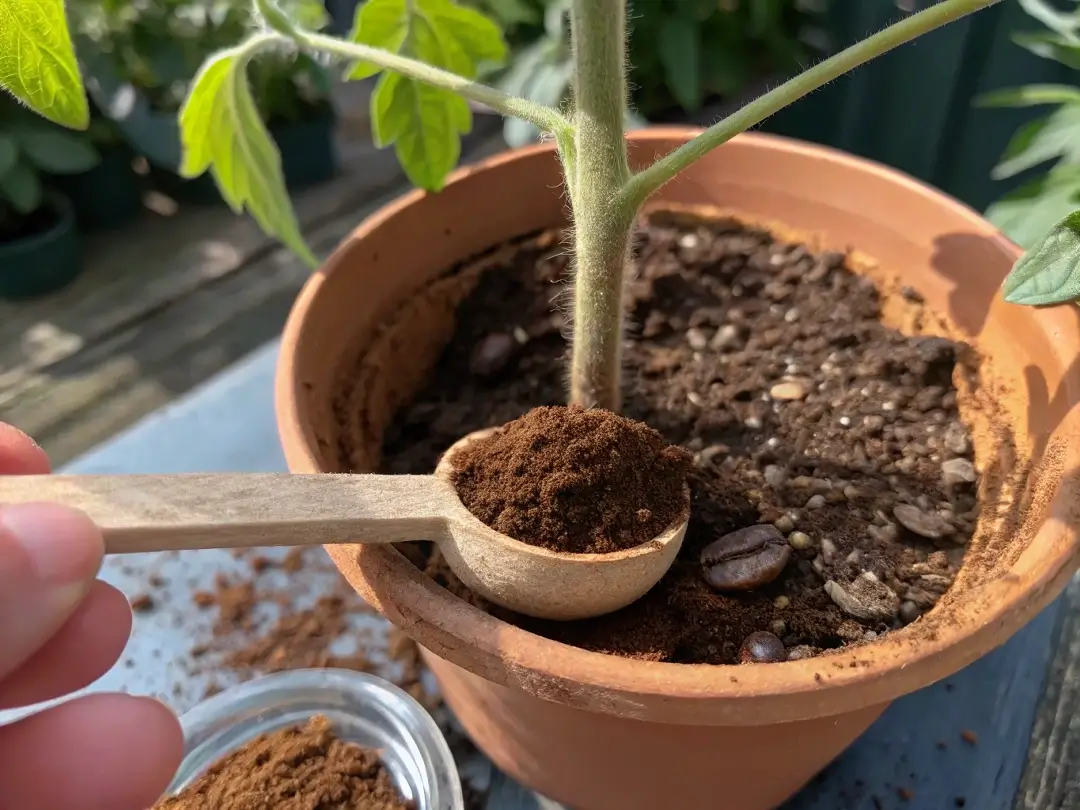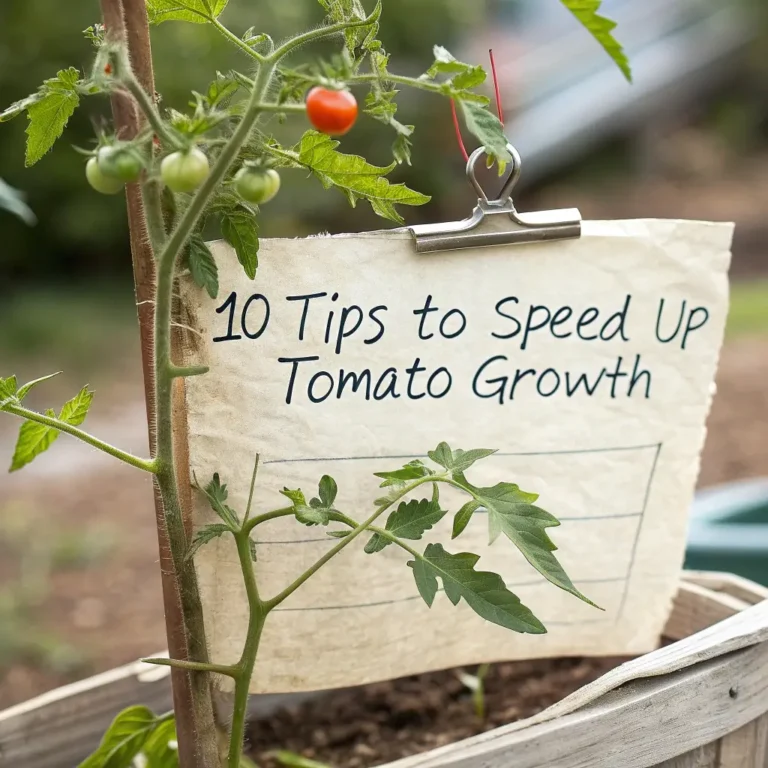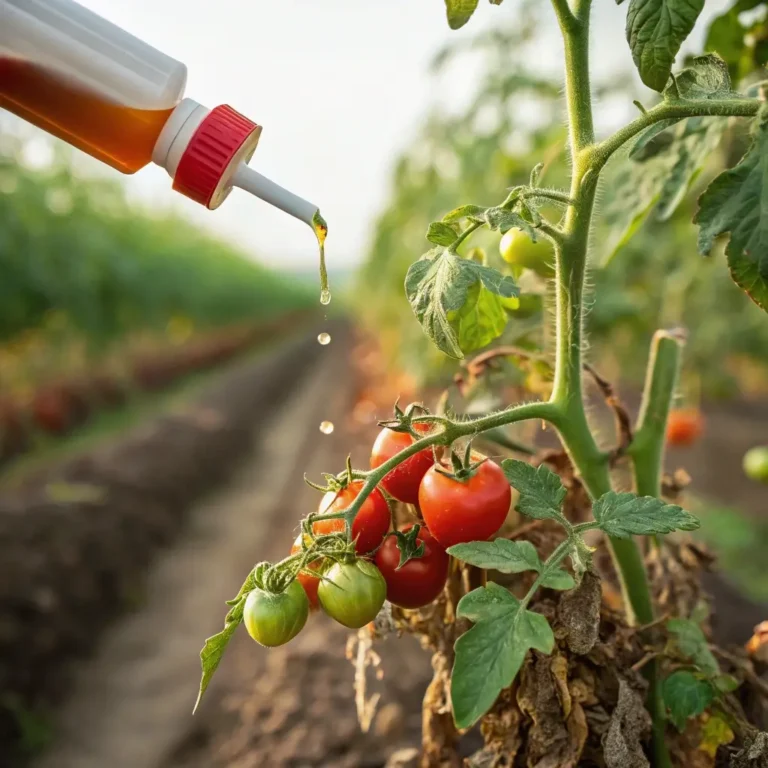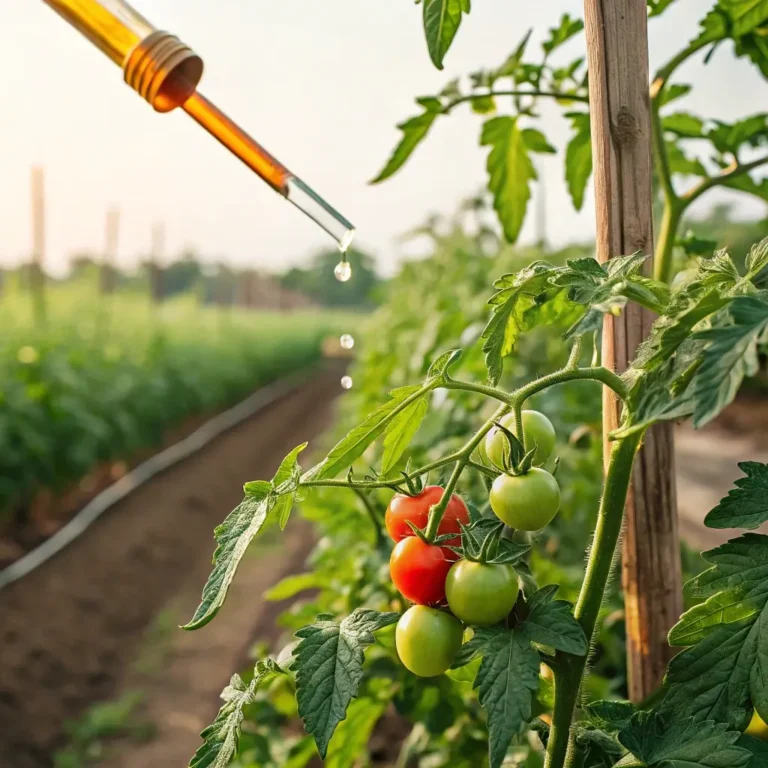Are Coffee Grounds Good For Tomato Plants? 5 Surprising Facts
Table of Contents
Introduction
Ever wondered if those leftover coffee grounds could give your tomato plants a boost? You’re not alone. As home gardening continues to rise in popularity (up 18% since 2020), many gardeners are searching for sustainable, cost-effective ways to enhance their garden’s productivity. The question “Are coffee grounds good for tomato plants?” has seen a 43% increase in search queries over the last year alone, indicating growing curiosity about this kitchen waste repurposing method. Let’s dig into the science and separate fact from fiction about using coffee grounds in your tomato garden, revealing some surprising insights that might change how you view your morning brew’s remains.
Ingredients List
To successfully incorporate coffee grounds into your tomato growing routine, you’ll need:
- Fresh or used coffee grounds (preferably unflavored)
- Mature compost (to blend with coffee grounds)
- Garden soil or potting mix
- Healthy tomato plants or seedlings
- Water
- Optional: Eggshells (for additional calcium)
- Optional: Epsom salt (for magnesium supplement)
The earthy aroma of coffee grounds can add a pleasant sensory dimension to your gardening experience, while their dark, crumbly texture mixes beautifully with rich garden soil. If coffee grounds aren’t available, consider substituting with tea grounds or worm castings for similar organic matter benefits.
Timing
Preparation Time: 15-20 minutes (collecting and preparing coffee grounds)
Application Time: 10-15 minutes per plant
Absorption Time: 2-4 weeks for full nutrient integration
Total Time: Approximately 3-4 weeks for noticeable results
Incorporating coffee grounds into your tomato care routine takes 30% less time than preparing traditional fertilizer applications, making it an efficient option for busy gardeners.
Step-by-Step Instructions

Step 1: Collect and Prepare Coffee Grounds
Save your used coffee grounds or request them from local coffee shops (many offer them free to gardeners). Allow the grounds to dry somewhat before use to prevent mold growth. For a single tomato plant, you’ll need approximately 2 cups of coffee grounds per application.
Pro Tip: Coffee shops discard approximately 13 pounds of used grounds daily—most are happy to share with gardeners!
Step 2: Test Your Soil pH
Before adding coffee grounds, test your soil’s pH level. Tomatoes prefer slightly acidic soil (pH 6.0-6.8). Coffee grounds have a pH between 5.5-6.8, making them generally compatible with tomato plants, but testing ensures you won’t make your soil too acidic.
Pro Tip: If your soil already tests below 6.0 pH, consider composting the coffee grounds first to neutralize some of the acidity.
Step 3: Add Grounds to Compost (Recommended Method)
Mix coffee grounds with your compost pile at a ratio of 1:4 (coffee grounds to other compost materials). This allows the grounds to decompose and become more balanced before application. The composting process can take 2-6 months depending on your climate.
Pro Tip: Coffee grounds contribute nitrogen primarily when composted first, with nitrogen availability increasing by up to 40% compared to raw application.
Step 4: Apply as Mulch or Soil Amendment
For established plants, sprinkle a thin layer (no more than 1/2 inch) of coffee grounds around the base of your tomato plants, keeping them at least 2 inches away from the stem. For new plantings, mix grounds into the soil at a ratio of about 10-20% coffee grounds to soil.
Pro Tip: Avoid direct seed contact with coffee grounds as they may inhibit germination in some cases.
Step 5: Monitor Your Plants’ Response
Observe your tomato plants over the next few weeks. Look for improved growth, deeper green foliage, and overall plant vigor. If leaves begin yellowing or growth seems stunted, reduce the amount of coffee grounds in future applications.
Nutritional Information
Coffee grounds offer several benefits for tomato plants:
- Nitrogen content: 1.45-2.28% (beneficial for leaf and stem growth)
- Phosphorus: 0.06-0.30% (supports root development)
- Potassium: 0.12-0.60% (enhances fruit production)
- Additionally contains calcium, magnesium, and other trace minerals
Research indicates that soil amended with 20% coffee grounds shows a 35% increase in nitrogen availability over a 4-month period compared to unamended soil.
Healthier Alternatives for the Recipe
While coffee grounds can be beneficial, consider these variations or enhancements:
- Compost Tea: Steep coffee grounds in water for 24 hours to create a nutrient-rich liquid fertilizer that’s gentler on plants
- Coffee-Compost Blend: Mix with crushed eggshells (for calcium) and banana peels (for potassium) for a more balanced amendment
- Vermicomposting: Process coffee grounds through worm bins first to create exceptionally rich worm castings
These alternatives can reduce the risk of over-acidification while maintaining the beneficial properties of coffee grounds.
Serving Suggestions
Tomato plants “served” with coffee grounds benefit most when you:
- Apply grounds in early spring as plants begin active growth
- Refresh applications monthly during the growing season
- Combine with complementary organic amendments like eggshells for calcium (reducing blossom end rot by up to 65%)
- Use coffee grounds in rotation with other organic fertilizers for balanced nutrition
For container gardeners, mix coffee grounds into the top inch of soil bi-monthly, using approximately 1 tablespoon per gallon of soil volume.
Common Mistakes to Avoid
- Applying Too Thickly: Layers exceeding 1/2 inch can create a water-repellent barrier
- Using Fresh Grounds Directly: Fresh grounds can be too acidic (pH 5.1) compared to used grounds (pH 6.5-6.8)
- Ignoring Soil pH: In already acidic soils, coffee grounds may lower pH beyond tomato preferences
- Expecting Immediate Results: Nutrient release from coffee grounds occurs gradually, with only 11% of nitrogen becoming available in the first 6 weeks
Data shows that excessive coffee ground application can reduce germination rates by up to 30% and potentially stunt growth in young seedlings.
Storing Tips for the Recipe
Properly store collected coffee grounds to maintain their benefits:
- Dry grounds completely before storing to prevent mold (spread thinly on newspaper for 24-48 hours)
- Store in breathable containers like paper bags or burlap sacks
- Keep in a cool, dry place for up to 2-3 months
- For longer storage, freeze dried grounds in sealed containers for up to 6 months
Pre-mix coffee grounds with compost or soil and store in covered containers to have amendment-ready material available throughout the growing season.
Conclusion
Coffee grounds can indeed benefit tomato plants when used properly, offering a sustainable way to recycle kitchen waste while providing valuable nutrients. The key lies in moderation, proper application methods, and understanding your soil’s needs. By composting grounds first or applying them as a thin mulch layer, you’ll harness their nitrogen content and improve soil structure without risking acidification. Try this eco-friendly approach to tomato gardening and you might find that your morning coffee ritual extends its benefits well beyond your cup into your garden’s productivity. Share your experiences with coffee grounds in your garden or ask questions in the comments below!
FAQs
Q: Do coffee grounds really deter pests from tomato plants?
A: Research suggests coffee grounds may deter slugs and snails by 37% through both physical irritation and caffeine content, which acts as a natural pesticide. However, they’re not effective against all tomato pests.
Q: How often should I apply coffee grounds to my tomato plants?
A: Apply a thin layer (1/4 inch) monthly during the growing season, or add to your regular compost applications. Over-application can lead to nitrogen overload or soil compaction.
Q: Can coffee grounds cause my soil to become too acidic for tomatoes?
A: Used coffee grounds are less acidic (pH 6.5-6.8) than fresh grounds and unlikely to significantly alter soil pH when applied in moderation. If concerned, compost the grounds first or conduct regular soil tests.
Q: Will coffee grounds attract unwanted insects to my tomato plants?
A: Properly dried and applied coffee grounds typically don’t attract pests. However, moldy or improperly stored grounds might attract fungus gnats. Ensure grounds are dried before application.
Q: Can I use flavored coffee grounds for my tomato plants?
A: Unflavored grounds are preferable as flavored varieties often contain oils and artificial ingredients that might harm beneficial soil organisms or introduce unwanted compounds to your garden.







